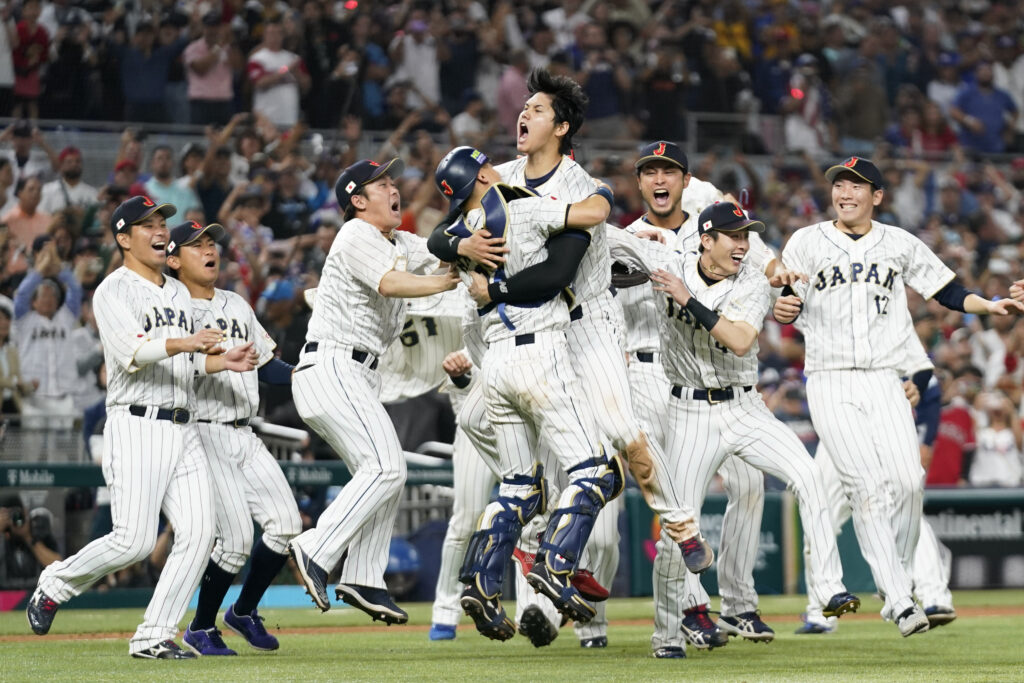
The inaugural World Baseball Classic took place in 2006. In 2023 — as many 17-year-olds do — it came of age, capturing the attention of both baseball traditionalists and the general sports fan, while converting elite American-born players to the value of international play.
Americans have always been slower than our foreign counterparts to revel in a global competition between national teams. Our focus is generally on domestic professional play. Thus, we have a “World” Series in baseball that does not involve the rest of the world. We declare our NBA victors the “World Champions” of basketball, and the winners of the Super Bowl — which actually began as the “AFL-NFL World Championship Game” — self-identify as the “World Champions.” Meanwhile, MLB players from other countries, including Hall of Fame-caliber players like Ivan Rodriguez of Puerto Rico, Miguel Cabrera of Venezuela, Robinson Canó of the Dominion Republic and Ichiro Suzuki of Japan, enthusiastically represented their respective countries in the World Baseball Classic.
Maybe it took the post-season starved Mike Trout to rally the American baseball troops, and he certainly deserved to finally play in elimination games as a professional. When the best player of his generation sounded the call, other players answered it, which in turn generated enhanced interest from American fans, including this one. I personally was glued to the competition even when the USA team was not playing, though watching Trea Turner announce himself to the world while wearing an American uniform was certainly impressive and may help encourage other American stars to suit up. While the dropping of baseball from the Olympic program may have been the impetus for creating the World Baseball Classic as a way to establish baseball’s global bona fides, the Classic has now become a compelling competition in its own right.
I did not think that the sight of arguably the two best players in the game — Angels teammates Trout and Shohei Ohtani — carrying in the flags of their respective countries (arguably the two best national teams in the world) before the final could be topped. And then it was, by the final showdown of Ohtani on the mound vs. Trout at the plate.
Sponsored Content
Even significant injuries to José Altuve of Venezuela and Edwin Díaz of Puerto Rico in the Classic did not seem to cause anyone to question the value of the competition — certainly not Altuve or Díaz, who expressed their desire to do it all again in 2026. The Astros and the Mets may not be quite as enthused, but the players have spoken and are continuing to speak about their love of the competition, and that it is making a difference.
Now that the Classic has registered on the Richter Scale of the American sporting landscape, those who have been ignoring it are suddenly full of suggestions as to what to do with it. Those suggestions include pausing the MLB season for a couple of weeks in the middle of the summer every four years in order to stage the Classic at that time — sort of an extended All Star break — as if pitchers and even position players are less worn down in the middle of the season than before the season starts. There was also chirping about the limitation on the number of pitches thrown by any pitcher at this time of the year, though when is the last time (or even the first time) you saw a pitcher throw six or seven innings in an All Star Game? The pitch count did not detract from the competition, and if that is what it takes to get MLB and MLB pitchers on board, then so be it. When Ohtani was on the mound for the final out against Trout, was anyone thinking about the limited number of pitches he had thrown? Plus, the Classic gives players a chance to play meaningful games before the MLB starts rather than exhibition pre-season games.
So, let’s just enjoy how the competition has blossomed and look forward to the next incarnation in 2026. Just like the caveman did not discover fire in order to burn the cave down, the stewards of baseball need not blow up the competition, but rather just keep the flame lit.
 Bob Latham is a partner at the law firm Jackson Walker, L.L.P., and a World Rugby board member. A compilation of his best columns titled “Winners & Losers: Rants, Riffs and Reflections on the World of Sports,” is available for purchase at amazon.com.
Bob Latham is a partner at the law firm Jackson Walker, L.L.P., and a World Rugby board member. A compilation of his best columns titled “Winners & Losers: Rants, Riffs and Reflections on the World of Sports,” is available for purchase at amazon.com.












 Copyright © 2025 by Northstar Travel Media LLC. All Rights Reserved. 301 Route 17 N, Suite 1150, Rutherford, NJ 07070 USA | Telephone: (201) 902-2000
Copyright © 2025 by Northstar Travel Media LLC. All Rights Reserved. 301 Route 17 N, Suite 1150, Rutherford, NJ 07070 USA | Telephone: (201) 902-2000